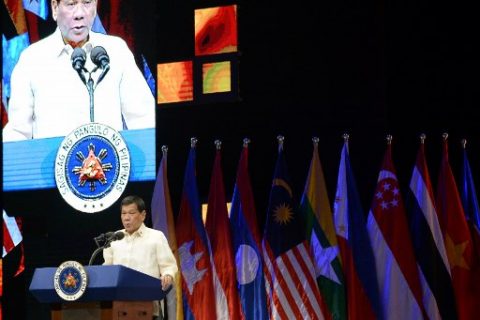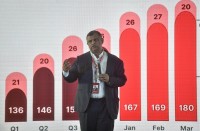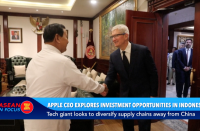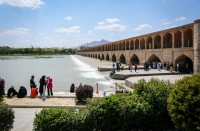
(Eagle News) – Philippine president Rodrigo Duterte predicted the Association of Southeast Asian Nations regional bloc will grow stronger as an economic power and as a geopolitical group and global player, stressing that it had proven that diversity was a “strength” rather than a weakness.
As the ASEAN celebrated its 50th year, Duterte said that it will prevail over existing challenges that face the region today, among which were terrorism, protectionism and threats to peace and security. The key is becoming more united and integrated, he said, with the focus on the common good of the ASEAN region.
“We proved that our diversity is a strength rather than a weakness,” Duterte said on his keynote speech capping off the three-day ministerial meeting with 27 foreign ministers.
“We proved that regionalism developed at our own pace and under our own terms, and with our values can work. We are stronger, more vibrant and more robust as the ASEAN community,” he said.
“Today, 50 years hence, we remain firmly convinced that we will prevail against the new and emerging challenges that we now face as an ASEAN community,” said the 72-year-old Philippine who is the rotating chair of this year’s ASEAN gathering.
ASEAN’s 50th year celebrations
The Philippines was at the focal point of the ASEAN’s golden anniversary celebration, as it hosted this grand event, as well as the 50th ASEAN Foreign Ministers’ Meeting.
Manila, the Philippine capital, also hosted the ASEAN Regional Forum where foreign ministers of major global players – ASEAN’s partners like the US, China, Australia, Japan, Russia, European Union and other countries – participated. Even the foreign ministers of South Korea and North Korea sat on one table because of the forum.
The current participants in the ARF are as follows: Australia, Bangladesh, Brunei Darussalam, Cambodia, Canada, China, European Union, India, Indonesia, Japan, Democratic Peoples’ Republic of Korea, Republic of Korea, Laos, Malaysia, Myanmar, Mongolia, New Zealand, Pakistan, Papua New Guinea, Philippines, Russian Federation, Singapore, Sri Lanka, Thailand, Timor Leste, United States, and Vietnam.
The Philippines’ hosting of ASEAN’s grand celebration also showcased the best of what the Philippines had to offer, as a festive, welcoming and friendly atmosphere prevailed during the ASEAN’s closing ceremonies and programs, which included, dances, songs, parades and lighting of 70 ASEAN lanterns in the country.
Vision of a prosperous region free from corruption and criminality
Duterte said that what ASEAN wants is a region that is “secure where our people can live without fear from the lawless elements and the debilitating effects of corruption and transnational crime.”
“We want a region that is stable where democratic institutions work, where nations regard each other with mutual respect and understanding, where the rule of law reigns supreme in the relations between states.”
“We want a region that is sustainable and inclusive in its growth where no one is left behind, and everyone has the opportunity for their potential.”
Duterte pointed out that ASEAN had overcome ideological issues that previously divided the region, where 50 years ago, the “uncertainty was unsettling.”
Tribute to ASEAN’s founding fathers
But with the vision of the five founding fathers of the ASEAN — the foreign ministers then of Indonesia (Adam Malik), Malaysia (Tun Abdul Razak), the Philippines (Narciso Ramos), Singapore (S. Rajaratnam), and Thailand (Thanat Khoman) — the ASEAN was born on August 8, 1967 with the signing of what is now known as the “ASEAN Declaration” in Bangkok, Thailand.
Duterte said these five men were “convinced that by transformative powers of cooperation and dialogue,” the Southeast Asian region can grow strong in peace.
These five foreign ministers, in 1967, also knew “of the need to protect our nations” from the “effects of regional and global geopolitical shifts.”
“They knew that they had to work together closely, to advance our own values and interests,” President Duterte said.
“As we move forward, we must express our gratitude to those who dared to dream the impossible and made this dream real for us,” Duterte said as he gave tribute to ASEAN’s founding fathers whose “patriotism went beyond borders.”
“They deserve a special place in our shared history , they deserve to be remembered in our collective memory, they deserve our applause.”
Indeed, during the ASEAN’s 50th anniversary celebration program in the Philippines, the descendants of the ASEAN’s founding fathers, including the former Philippine president Fidel Ramos, son of former Philippine foreign minister Narciso Ramos, were recognized and called to the stage.
The wisdom of the “ASEAN way”
The ASEAN declaration on August 8, 1967 spelled out the aims of the regional bloc which were mainly “about cooperation in the economic, social, cultural, technical, educational and other fields, and in the promotion of regional peace and stability through abiding respect for justice and the rule of law and adherence to the principles of the United Nations Charter.”
With these specified aims of the ASEAN, the so-called ASEAN way gained prominence, which is basically decision-making by consultation and consensus. It is non-confrontational but the approach focused on dialogue and friendship, highlighting mutual interest.
“Our guideposts were also the time-honored principles of non-interference and decision-making through consultations and consensus,” Duterte said in his speech.
He said “the ASEAN way propelled our region towards the path of greater peace and progress, and prosperity of our peoples.”
“Together, we prevailed… We proved that regionalism developed at our own pace and under our own terms, and with our values can work,” Duterte explained during his keynote speech.
It was the start of bigger things to come.
Standing up against protectionism
Now the ASEAN is a region of peace and prosperity, where friendship, cooperation and dialogue is the main way of resolving and avoiding conflicts.
Duterte said that protectionism would not help ASEAN achieve its dream of economic integration, as the region collectively promotes and protects the rights of all ASEAN citizens as a whole.
“With ASEAN people at the core of our pursuit for lasting peace and security, economic prosperity and continued cultural development. We must endeavor to do more,” he said.
“Prosperity should not be a right of just a chosen few, it must be a blessing enjoyed by all,” he said.
To achieve this, Duterte said that private sector should do more, and that public private partnership should be “harnessed to lift our peoples from poverty.”
He also highlighted the role of MSMEs or micro-small and medium enterprises as they could help achieve growth for more people “from the grassroots.”
If ASEAN is to achieve “economic integration,” Duterte said that the region should stand up against protectionism.
“ASEAN has a bigger stake than any other part of the world in standing up against protectionism and securing the rules of the game in international trade,” he said.
“Together we can make our dreams real” – Duterte
Duterte said that ASEAN and its people have many reasons to celebrate as it reaches its 50th year when there is generally peace and prosperity in the region.
It was what the ASEAN’s founding fathers had hoped for.
And the challenge for ASEAN on its 50th year, he said, is for the ASEAN leaders to “achieve what we set out: an ASEAN that is proactive, relevant and transformative.”
“Fifty years of ASEAN shows us there is a bright future to look forward to and to work for,” Duterte said.
“We must remain united. As we look back on half a century of achievement, we look forward to a future of greater possibilities, knowing that together we can make our dreams real,” he said.
(Eagle News Service)







